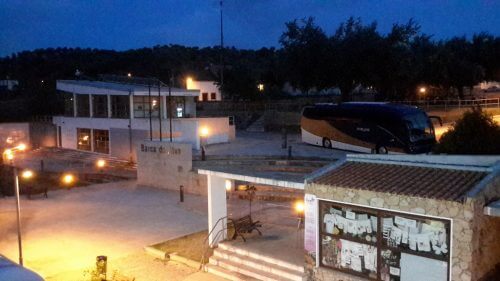
In the hills by the Douro River in Portugal there is a small historic village called Castelo Rodrigo. Situated close to the boarder with Spain, it dates back to 500 BC having once been conquered by the Arabs and then repopulated and fortified. Its castle dates back to 1590. Famous people who have lived in the village include João de Gouveia who was grandfather of Pedro Álvares Cabral, the man credited with discovering Brazil, and there have also been several viceroys of Portugal. Just 50 people live there now and tourism plays a vital role in allowing that to continue.[…]
What you get with a subscription
- Operator & Supplier Profiles
- Face-to-Face Interviews
- Lastest News
- Test Drives and Reviews
- Legal Updates
- Route Focus
- Industry Insider Opinions
- Passenger Perspective
- Vehicle Launches
- and much more!


